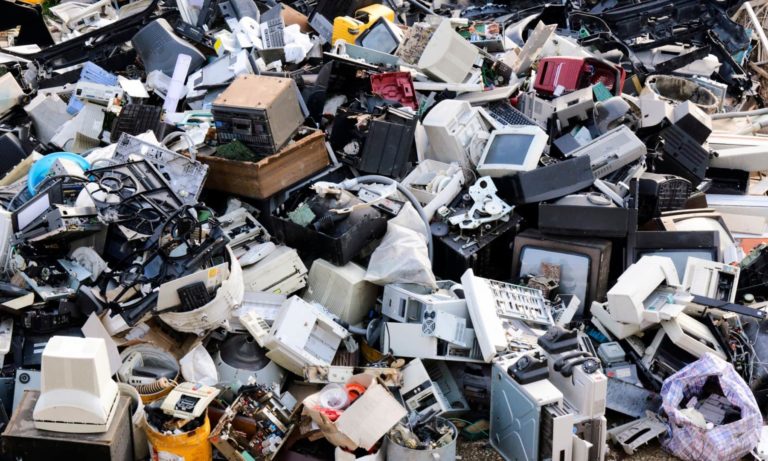New bill seeks to tame e-waste pollution with fines, jail terms

Those found guilty risk a fine of Sh20,000 or imprisonment for six months.
Producers and handlers of electronic waste will soon be required to dispose of it at specific sites or face tough penalties, if a new law currently before the Senate is passed.
The proposed Electronic Equipment Disposal, Recycling and Reuse Bill, 2025, outlines a national system for managing electronic waste across Kenya, targeting both individual and institutional offenders.
The Bill, sponsored by nominated Senator Peris Tobiko, seeks to make it illegal to dump e-waste in unauthorised areas.
Those found guilty risk a fine of Sh20,000 or imprisonment for six months. According to the draft, “A person who generates e-waste in Kenya shall dispose of it at the designated ward consolidation site within their respective county ward.”
The law introduces a three-tier disposal system: ward-level consolidation sites, county-level sorting facilities, and a National E-waste Recycling Plant.
Each ward will host a designated collection site where discarded electronics will be assembled before being transported to county sorting zones. From there, the waste will be forwarded to a central national plant for recycling.
The Environment Cabinet Secretary, in consultation with the National Environment Management Authority (Nema), will be required to establish the national recycling plant through a gazette notice.
The plant must sit on at least 30 acres, surrounded by a five-acre buffer zone. Governors will also be expected to gazette e-waste sorting sites in their counties, with each occupying no less than five acres and maintaining a two-acre buffer zone.
“The Cabinet Secretary, in consultation with Nema and the Council of County Governors, may prescribe standards, guidelines and requirements for the establishment of the National E-waste Recycling Plant, e-waste sorting sites, and ward consolidation sites,” the Bill reads.
To facilitate collection, governors will be allowed to create ward-level consolidation points. The Bill empowers county environment executives to license individuals who wish to operate as e-waste collectors.
These collectors will be required to deliver all materials to the designated sites or the national recycling facility.
“An e-waste collector shall deliver materials collected from ward consolidation sites to a designated sorting site or the National E-waste Recycling Plant,” the Bill states.
Private recycling operations will also be regulated. The Bill proposes that anyone wishing to run a recycling facility must first obtain a licence from the Cabinet Secretary for Environment. “No person shall operate as an e-waste recycler without first obtaining a licence from the Cabinet Secretary,” it says.
Those who violate the law while operating as recyclers could be fined up to Sh50,000 or jailed for up to six months, or both.
Senator Tobiko said Kenya currently generates an estimated 3,000 tonnes of e-waste annually, though more recent figures place the volume at 51,300 tonnes.
Most of this waste ends up in open dumpsites, where it mixes with regular garbage, posing serious risks to public health and the environment.
The World Health Organization classifies e-waste as hazardous due to the toxic substances it contains.
Improper disposal can release over 1,000 harmful compounds, including lead, dioxins and mercury, which can damage the nervous system and pollute water and soil.
“Due to the grave implications that mishandling e-waste can have on both the environment and public health, it is paramount that a legal framework be established to ensure the safe and regulated handling and disposal of e-waste,” the Bill emphasises.
